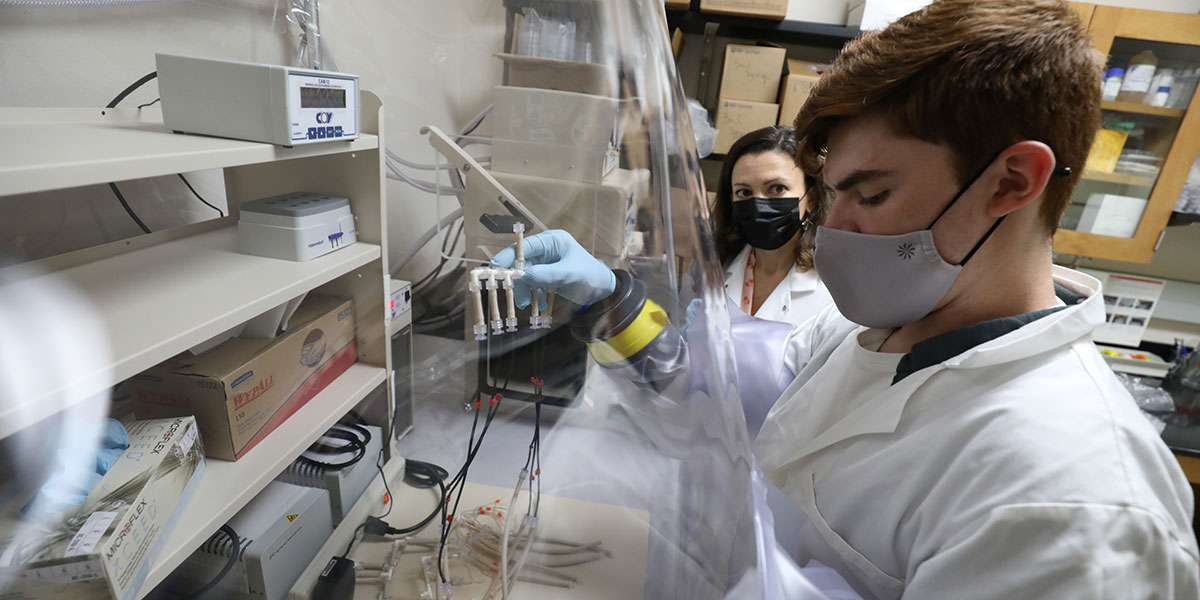How friendship between Baylor profs leads to incredible opportunities for BU students

Baylor is large enough to offer top-notch academics and championship-level athletics — but small enough that you still see your friends when walking across campus.
That goes for both BU students and faculty. Baylor’s “not too big, not too small” atmosphere allows interdisciplinary friendships to grow among the faculty — and students reap the benefits.
Take, for example, professors Leigh Greathouse (nutrition science) and Erika Abel (Honors College/biology). More than just fellow BU faculty, they are longtime friends and collaborators. They’re also both cancer survivors. That shared experience, along with their shared passion for student research, has led to a friendship that crosses typical departmental lines.
Dr. Greathouse’s research focuses on the relationship between gut health and diseases such as colon cancer. One of Dr. Abel’s primary interests is finding research opportunities for students. One day, Greathouse just happened to mention to Abel her lab’s need for an anaerobic chamber — a machine which provides an oxygen-free environment that mimics conditions within the human gut. The conversation between friends eventually led to another conversation with Abel’s boss, Honors College Dean Doug Henry, who saw a worthy pursuit and agreed to support Greathouse’s lab by providing funds for the chamber — the first of its kind of the Baylor campus. In the process, the move also created new research opportunities for Honors College students.
[LISTEN to a conversation with Greathouse and Abel on a recent episode of Baylor Connections.]
“When I talked to Dr. Abel about this, we figured out there would be a potential collaborative opportunity to train Honors students on using the anaerobic chamber,” explains Greathouse. “It’s a win-win situation. I get the anaerobic chamber to help us facilitate high-level research, and the Honors College and other undergraduates outside of the Honors College get amazing opportunities.”
Students absolutely see the benefits they get from such partnerships.
“The anaerobic chamber allows us to get closer to what’s actually happening in the gut, which is great for the science,” says Kaitlyn Tremble, a junior University Scholar. After spending last summer in M.D. Anderson’s experimental radiation oncology department, Tremble says she’s very aware of the benefits of opportunities like those she’s found in Greathouse’s lab. “It’s great to be able to learn on equipment like this. Any new experience that teaches you techniques or methods you might not otherwise receive is incredibly valuable.”
Sic ’em, Dr. Greathouse, Dr. Abel, and Baylor research partnerships!

